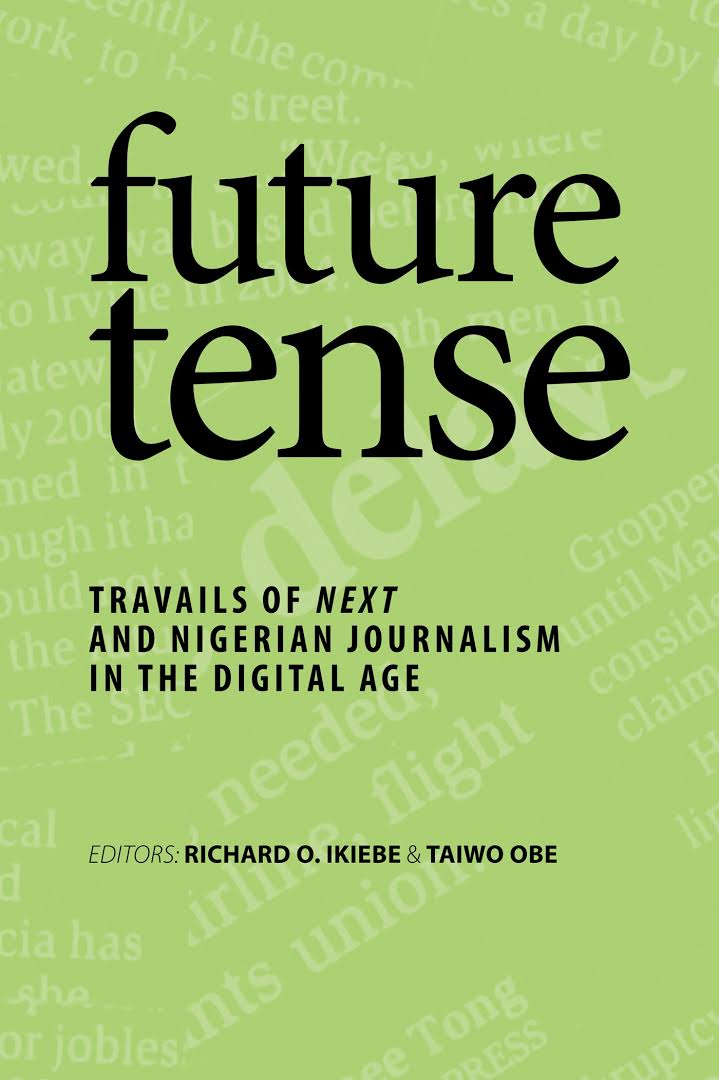In a Tweet thread, Gilbert Alasa based on insights from Future Tense- Travails of NEXT and Nigerian Journalism in the Digital Age outlines reasons for the failure of the audacious defunct newspaper NEXT by Pulitzer-winning writer Dele Olojede and what present media organisations must do to avoid making similar mistakes.
#Thread
+ In 2009, Pulitzer-winning writer Dele Olojede made an audacious move to change the Nigerian media with a new brand of journalism. He launched 234NEXT newspapers.
+As someone who knew the Nigerian media industry more than the back of his palms, plus a successful media career in the US, no one doubted his capacity to make it happen. But it never happened!
+The story started well and promising, but lost rhythm somewhere along the way. In less than three years, as Taiwo Obe puts it, “the curtain came down on NEXT Newspapers.”
+I won’t dwell much on how it was a breath of fresh air for the Nigerian media or how it paraded some of the brightest minds in that space. Like we say here, Nigeria happened to 234NEXT! Or, so it seemed!
+Till date, people still ask: why did NEXT fail? How could such a promising and excellent newspaper go under, considering the quality of its editorial leadership?
+I stumbled on a book today – Future Tense – Travails of NEXT and Nigerian Journalism in the Digital Age, co-authored by Richard Ikiebe and @Taiwo Obe where the biggest names in Nigerian media shared insightful perspectives on NEXT, the media in Nigeria, et al. succinctly insightful.
So, here are some of the contributions that stand out for me.
“My regular worry with one practice in our editorial commentary is the pestering & pervasive culture of substituting opinion for facts. Ever so present is the flaunting rendition of opinion, totally unsupported by evidence, as the Holy Grail.” Dapo Olorunyomi
“For any publisher or editor to be dishing out what he or she thinks people should read instead of researching to find out what they want to read smacks of costly arrogance because he/she is not the one to buy or advertise in the paper.” – Isaac Umunna
“I’ve kept all the editions of NEXT that I bought- and they can fill a very big Ghana-Must-Go bag…It’s the sort of paper I’d be happy to show my grandchildren.” – Pelu Awofeso
“The point then as to why NEXT failed must be a cocktail of reasons, not one oracular diagnosis, and this will be: part business model, part management, part editorial leadership, part readership culture, part advert(ising) culture, part circulation culture, and a host of other carefully, keenly, reflected considerations.”
READ ALSO: MY NEXT NEWSPAPER MISADVENTURE – OLOJEDE
“The first rule is: since news media are like (any) other business, they must be managed by business technocrats, not by journalists (brilliant or not.” – Ajibola Hamzat
- “The truth is that ours is still far from a very educated, issue-oriented society. This is still a tabloid society, not given to intellectual rigour. Majority of us are not that serious-minded yet.” – Andy Ezeani
- Interestingly, these conversations happened nearly a decade ago, but the content of the 182-page book remains insightful, I daresay, even for our new media landscape!
- Some of the factors that forced NEXT off the newsstands are still the same reasons why many media houses are struggling today. The welfare of the newsman has not improved. So, while he fights to save the world, he remains a subject of scorn to a society that exalts materialism above the dignity of labour.
- We have to be ready to do things differently; to engage readers differently, to build VALUABLE content. It’s like what we call Cornerstone Content or Evergreen Content in digital media.
- The currency of news is fleeting, temporary and ubiquitous. The story about Evans, the kidnap kingpin, broke. It’s more or less useless to an average reader today. But by focusing on creating and valuable content, news platforms offer readers a compelling reason to keep visiting, reading more content at a go or pay to subscribe.
- So, beyond news stories, news organisations will have to offer readers something more. People will always pay for VALUABLE CONTENT. That is why The Times could rake in $185.5 million in revenue for digital subscriptions & ads during Q2 of 2020.
- There is just so much we are not exploring yet. If we do, our news organisations can be far more sustainable than they currently are.





